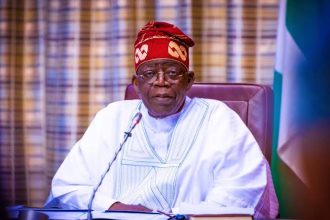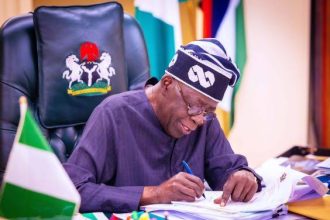Nigeria attracted a sum of $223.3 million as foreign direct investments (FDI) in the first five months of 2022, that is between January and May of the year, representing a 3.7% increase compared to $215.3 million recorded in the corresponding period of the previous year.
In contrast to the comparable period of 2020, FDI declined by 7.5% compared to $241.5 million received in the reference period. This is according to data compiled from the Central Bank of Nigeria (CBN).
Nigeria’s foreign direct investment has dwindled significantly recently, hitting a record low of $698.8 million in 2021, most of which was equity. However, most developing economies desire more direct investment considering the benefits it has on the host countries.
To put the concept into perspective, according to the International Monetary Fund (IMF), foreign direct investment is a form of inflow in which investors bring in their investments in an enterprise in another economy with the objective of gaining control or exerting significant influence over the management of the firm.
Increased foreign direct investment is believed to help improve the level of employment in the country, allowing the transfer of technology, thereby contributing to economic growth.
According to the Organisation of Economic Co-operation and Development (OECD), FDI is an integral part of an open and effective international economic system and a major catalyst for a country’s development.
On the other hand, the inability of foreign investors to repatriate their proceeds from the Nigerian economy has also further affected inflows of foreign direct investments into Nigeria.
Last month, the International Air Transport Association (IATA) stated that Nigeria is withholding an estimated $450 million in revenue belonging to foreign airlines due to forex shortages.
A major issue, which has discouraged foreign players from bringing their monies into the economy, further causing a shock in FX supply, consequently leading to the depreciation of the local currency.
In the same vein, the decline in Nigeria’s crude oil production levels has also resulted in a decline in the nation’s oil export earnings, while Nigeria is still very much dependent on importation.
Factors that determine level of FDIs in Nigeria
- A scientific study by Iyaji Danjuma, published in the CBN Journal of Applied Statistics opines that the economy of a country has a significant positive relationship with the amount of FDI inflows. Note that Nigeria’s real GDP grew by 3.11% year-on-year in Q1 2022, following a 3.98% growth recorded in the previous quarter.
- However, Nigeria’s economy has been tethering with the rising fear of an economic recession as inflationary pressure, exchange rate depreciation and insecurity continue to hamper economic productivity. The study also finds that trade openness and infrastructure are factors with positive effects on FDI.
- On the other hand, terrorism index, political violence, and corruption are some of the factors that contribute to the decline in foreign direct investment, all of which are social issues currently experienced in the Nigerian economy.
- Foreign direct investment is a major form of investment inflows desired by most economies considering it helps contribute significantly to improving the economy and also helps provide the much-needed forex liquidity.
- Recipients of FDI often gain employee training in the course of operating new businesses, which contributes to human capital development in the host country. Also, profits generated by these investments contribute to corporate tax revenues in the host country.
- It is imperative for the Nigerian economy to be seen as an investment-worthy system, where businesses thrive so that foreign investors can feel confident enough to bring in their monies.













